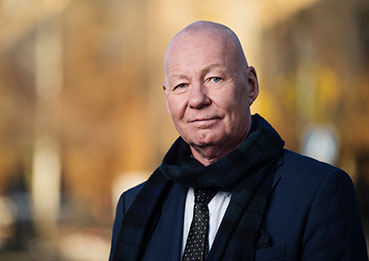The increasing polarization and the high tone of voice where the world is increasingly dressed in only black or white reinforces these demands. Campaign-like appeals on social media are becoming increasingly common, where the logic that if you are not in, you are against seems to apply. This type of discussion climate does not fit well with the researcher’s task of using facts to highlight several different perspectives and advocate different results as part of an academic dialogue.
I am well aware that these are genuinely difficult questions and, given the high standards in academia, there is a responsibility to create an atmosphere that encourages a free search for knowledge, free dissemination of knowledge and free debate. But at the same time, it is a priority that our students and staff feel safe and secure on our campuses regardless of where they come from and what their opinions are.
In our vision we write “Our academic freedom and our principles of openness and transparency are fundamental to the development of knowledge and democracy” and this can also serve as a guide in the difficult delineations that we may be forced to make when it comes to everything from taking positions in conflicts in other parts of the world or considering what is knowledge worth protecting in the new, more complex international environment.
In other words, balancing the aim of KTH as an open and internationalized knowledge arena on the one hand, and on the other hand a protected place where neither national security interests nor individual groups are harmed, is difficult and we should be aware that there are no simple, ready-made answers to all the questions that arise. Some starting points, however, are that we follow the government’s line in terms of foreign policy positions, internally we have an ethical policy and our vision and goal documents to relate to, we have a new security organisation and also a security protection analysis that has recently been carried out, and we have greater awareness throughout the organisation.
But what is crucial in everyday life is the safety and security of students and staff. If this is lost, we risk ending up in a culture of silence, which would be devastating for a university.


No comments yet. Be the first to comment!